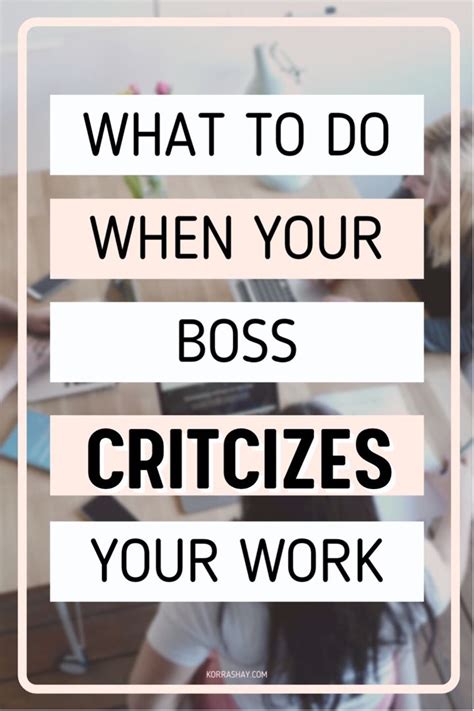Your dad wants the best for you, but sometimes his criticism can be hard to take. If you’re struggling with how to respond to his feedback, here are a few things to keep in mind:

1. Stay Calm and Respectful
It can be difficult to stay calm when you’re feeling criticized, but it’s important to remember that your dad is only trying to help. Take a deep breath and try to approach the conversation from a place of respect.
2. Listen to What He Has to Say
Before you start defending yourself, take the time to really listen to what your dad has to say. Try to understand his perspective and where he’s coming from. This will help you to respond in a more thoughtful and productive way.
3. Ask Questions
If you’re not sure what your dad is trying to say, ask him to clarify. This will help you to better understand his feedback and to avoid misunderstandings.
4. Express Your Appreciation
Even if you don’t agree with your dad’s criticism, it’s important to let him know that you appreciate his feedback. This shows that you’re open to his input and that you value his opinion.
5. Set Boundaries
If your dad’s criticism is starting to feel overwhelming, it’s okay to set some boundaries. Let him know that you’re not willing to discuss certain topics or that you need some space.
6. Take Time to Process
After you’ve had a conversation with your dad, take some time to process what he said. Think about his feedback and how it applies to your work. This will help you to develop a more informed response.
7. Respond in a Positive Way
When you’re ready to respond to your dad’s criticism, do so in a positive and constructive way. Focus on how you can improve your work and show that you’re open to his feedback.
Additional Tips
- Choose the right time and place to talk. Don’t try to have a conversation about your work when you’re both tired or stressed.
- Avoid using defensive language. Instead of saying “You’re wrong,” try “I see where you’re coming from, but I think…”
- Focus on the facts. Don’t try to argue with your dad based on your emotions. Instead, stick to the facts and provide evidence to support your points.
- Be willing to compromise. You may not agree with everything your dad says, but you may be able to find a compromise that works for both of you.
Remember, your dad is only trying to help you. If you can approach his criticism with an open mind, you can learn from his feedback and improve your work.
What Not to Say
When your dad criticizes your work, there are a few things you should avoid saying:
- Don’t get defensive. This will only make the situation worse.
- Don’t dismiss his feedback. Even if you don’t agree with him, it’s important to show that you’re listening to what he has to say.
- Don’t argue with him. This will only lead to a pointless conflict.
- Don’t take it personally. Your dad’s criticism is not a reflection of his love for you.
How to Respond to Specific Criticisms
Here are some specific examples of how to respond to common criticisms from your dad:
- “Your work is sloppy.”
“I understand that you think my work is sloppy, and I appreciate your feedback. I’ll take some time to go over it again and make sure that it’s up to my usual standards.”
- “Your work is not creative enough.”
“I appreciate your feedback, and I’ll definitely keep it in mind as I work on my next project. I’ll try to come up with some more creative ideas and see if I can improve the quality of my work.”
- “You’re not working hard enough.”
“I understand that you think I’m not working hard enough, and I appreciate your feedback. I’ll make sure to put in more effort and see if I can improve my productivity.”
- “You’re not taking this seriously.”
“I understand that you think I’m not taking this seriously, and I appreciate your feedback. I’ll make sure to approach my work with a more serious attitude and see if I can improve the quality of my work.”
Conclusion
It can be difficult to deal with criticism from your dad, but it’s important to remember that he only wants what’s best for you. If you can approach his criticism with an open mind, you can learn from his feedback and improve your work.
